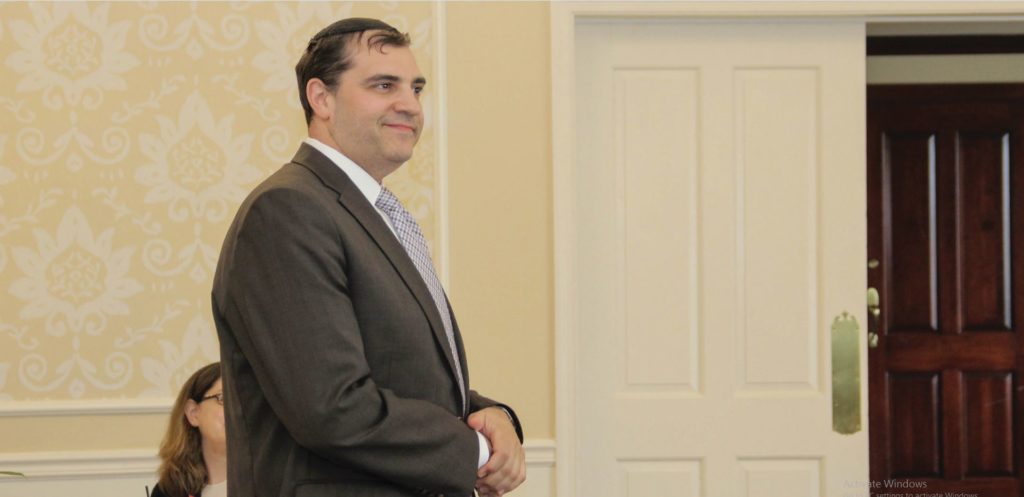It’s complicated. That’s how Rabbi Wesley Kalmar describes Yom HaAtzmaut.
Much like Purim and Chanukah, Yom HaAtzmaut is not mentioned in the Torah and is based on a miracle – victory by the Jews when faced with annihilation.
For some, Israel Independence Day is basically a secular holiday. But at shuls such as Anshe Sfard Kehillat Torah where the 43-year-old Kalmar became rabbi in 2010, Yom HaAtzmaut is observed as a holiday with religious significance.
“On some level, it represents our thanks to G-d for the fact that we have a state of Israel, for the amazing miracle that we have a state of Israel,” Kalmar said. But, he added, “It’s a holiday fraught with some confusion, ambiguity within the religious community as to whether to observe it and then how to observe it if you believe you should observe it. We believe it’s a special day liturgically. We say the Hallel (psalms of praise) and depending on custom, it can be said with or without a blessing – both are valid approaches. And we have a festive meal.”
Israel Independence Day marks the establishment of the modern state of Israel on May 14, 1948, which was the 5th day of Iyar on the Hebrew calendar.
But in 1951, Kalmar said, the Israel Rabbinet decided that if Yom HaAtzmaut falls on a Friday or a Saturday, so as not to be in violation of the Sabbath, it is moved back to Thursday.
Rabbi Kalmar said that every so often (the last time in 2009), the 5th of Iyar actually falls on May 14. But this year it falls on Friday, April 20, meaning it is observed on Thursday, April 19. The Milwaukee Jewish Federation’s community Yom HaAtzmaut celebration will begin at 3 p.m. on April 22, the closest Sunday to the 5th of Iyar, at the Harry and Rose Samson Family Jewish Community Center in Whitefish Bay.
Some synagogues also will observe the day on April 22 with Israeli singing, dancing and food. But at shuls such as ASKT, the observance “has to be on the fifth day of Iyar” whenever possible, Rabbi Kalmar said.
Yom HaZikaron (Memorial Day for Israel’s fallen soldiers) comes the day before Yom HaAtzmaut, further complicating when Independence Day is observed because of when Yom HaZikaron might fall.
A holiday meal with a Torah celebration of Yom HaAtzmaut is “something we have done since we’ve been here,” Kalmar said. “It was a continuation along the same vein as when Rabbi Levine was observing the holiday.” Rabbi Nachman Levine, rabbi emeritus at ASKT where he was the founding rabbi, still often leads the Hallel on Yom HaAtzmaut.
Israel can be a challenging place with so many different views, but “we support it 100 percent,” Kalmar said.
And we acknowledge the miracle on Independence Day. “Outside of Israel, through our liturgy and celebration, we are able to capture the moment,” Kalmar said.
“We get a taste of the holiday as it is being observed in Israel.”


